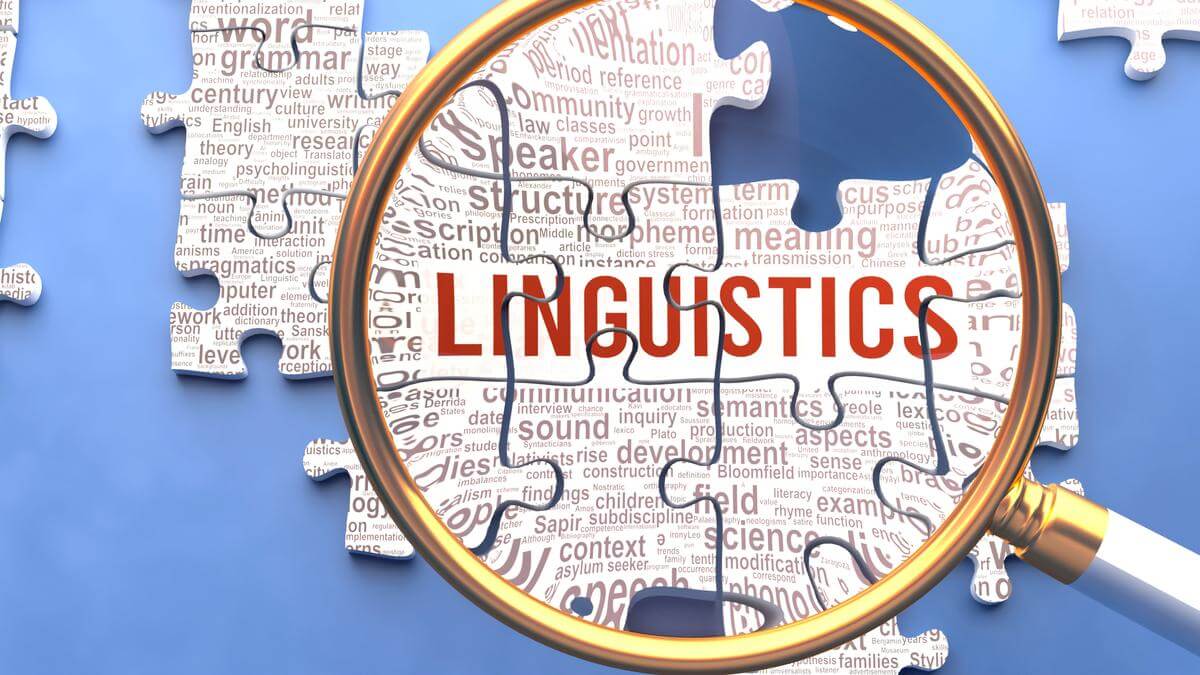
Language processing is a complex cognitive process that allows humans to understand and produce language. It involves various cognitive, neural, and social processes that operate in conjunction to enable the use of language. Linguistics is a field that studies language and its uses, including language processing. In this blog post, we will explore how linguists study language processing. We will focus on several subfields of linguistics, including cognitive psychology, neurolinguistics, computational linguistics, psycholinguistics, experimental linguistics, corpus linguistics, sociolinguistics, and applied linguistics.
Cognitive Psychology And Language Processing
Cognitive psychology is a branch of psychology that examines mental processes such as perception, attention, memory, and language. Cognitive psychologists aim to understand how people process and use information. In the context of language processing, cognitive psychology investigates how the brain processes linguistic input and output. Linguists use various experimental methods to study language processing in cognitive psychology, such as comprehension tasks, production tasks, and priming experiments.
One area of interest in cognitive psychology is the nature of the mental representations that underlie language processing. Linguists assume that the processing of language involves the activation of mental representations of words, phrases, and sentences. These representations are stored in the brain and are used to understand and produce language. Linguists also investigate how different types of mental representations affect language processing. For example, some researchers have proposed that the mental representations of words are structured in terms of their semantic and phonological features, while others have proposed that words are represented in terms of their distributional properties.
Another area of interest in cognitive psychology is the role of attention in language processing. Linguists investigate how attentional processes affect the processing of linguistic input and output. For example, research has shown that both top-down and bottom-up processes influence attention in language processing. Top-down processes involve the use of prior knowledge and expectations to guide attention, while bottom-up processes involve the detection of salient features in the linguistic input that attract attention.

Neurolinguistics And Language Processing
Neurolinguistics is a field that investigates the neural processes that underlie language comprehension and production. It aims to understand how the brain processes linguistic input and output. Neurolinguists use various neuroimaging techniques, such as functional magnetic resonance imaging (fmri) and electroencephalography (eeg), to study the brain mechanisms of language processing.
One area of interest in neurolinguistics is the neural basis of sentence processing. Researchers have used fmri to investigate which brain regions are activated when people process sentences. They have found that different brain regions are involved in processing different aspects of sentences, such as syntax, semantics, and pragmatics. For example, the left inferior frontal gyrus is involved in processing the syntactic structure of sentences, while the left posterior superior temporal gyrus is involved in processing the meaning of sentences.
Another area of interest in neurolinguistics is the neural plasticity of language processing. Researchers have investigated how the brain adapts to changes in the linguistic environment, such as exposure to a new language. They have found that the brain has a remarkable ability to reorganize its neural networks to accommodate changes in the linguistic environment. For example, in bilingual individuals, the brain regions involved in processing language are more flexible and adaptable compared to monolingual individuals.
Computational Linguistics And Language Processing
Computational linguistics is a field that investigates the computational and statistical models of language processing. It aims to develop algorithms and models that can simulate the processing of linguistic input and output. Linguists use various machine learning methods, such as artificial neural networks, to study the computational aspects of language processing.
One area of interest in computational linguistics is natural language processing (nlp). Nlp is the field that studies how machines can process and understand human language. Researchers in this field investigate how to develop algorithms that can perform tasks such as machine translation, speech recognition, and sentiment analysis. One of the challenges in nlp is to develop models that can handle the ambiguity and variability of natural language.
Another area of interest in computational linguistics is probabilistic models of language processing. Linguists use probabilistic models to describe how the brain processes language. These models assume that language processing involves probabilistic inference, where the brain uses statistical information to make predictions about the linguistic input and output. For example, probabilistic models can account for the role of context in language processing, where the meaning of a word or sentence is influenced by the linguistic context in which it appears.

Psycholinguistics And Language Processing
Psycholinguistics is a field that investigates the cognitive processes involved in language processing. It aims to understand how people acquire, produce, and comprehend language. Linguists use various experimental methods, such as eye-tracking and reaction time measures, to study language processing in psycholinguistics.
One area of interest in psycholinguistics is language acquisition. Researchers investigate how children acquire language and what factors influence the course of language development. For example, research has shown that children learn language by building upon their existing knowledge of the world. They use the information in the linguistic input to refine their mental representations of language.
Another area of interest in psycholinguistics is the role of working memory in language processing. Working memory is the cognitive system that allows us to maintain and manipulate information in the short-term. Linguists investigate how working memory resources affect the processing of linguistic input and output. For example, research has shown that people with high working memory capacity are better at handling complex sentence structures than people with low working memory capacity.
Experimental Linguistics And Language Processing
Experimental linguistics is a field that investigates language processing using experimental methods. It aims to understand how people process and use language in real-world contexts. Linguists use various experimental paradigms, such as sentence comprehension tasks and discourse analysis, to study language processing in experimental linguistics.
One area of interest in experimental linguistics is the role of context in language processing. Researchers investigate how linguistic context affects the interpretation of words and sentences. For example, research has shown that the meanings of words are influenced by the context in which they appear. The meaning of a word can be ambiguous in isolation, but it becomes clear when it is placed in a sentence context.
Another area of interest in experimental linguistics is the study of discourse. Discourse refers to the use of language in social interaction. Linguists investigate how people use language to achieve different communicative goals, such as persuading, informing, and entertaining. For example, research has shown that speakers use different discourse markers, such as ‘well’ and ‘so’, to signal different aspects of their communicative intentions.

Corpus Linguistics And Language Processing
Corpus linguistics is a field that investigates language by analyzing large collections of linguistic data, called corpora. It aims to understand the patterns and structures of language use. Linguists use various corpus analysis techniques, such as concordance analysis and frequency analysis, to study language processing in corpus linguistics.
One area of interest in corpus linguistics is the study of linguistic variation. Researchers investigate how language use varies across different contexts, such as social class, gender, and region. For example, research has shown that social factors, such as ethnicity and age, influence the use of language features such as grammatical structures and vocabulary.
Another area of interest in corpus linguistics is the study of register and genre. Register refers to the formality level and style of language use, while genre refers to the communicative purpose and structure of texts. Linguists investigate how register and genre affect the use of language features. For example, research has shown that certain grammatical structures are more common in formal registers and genres, while others are more common in informal registers and genres.
Sociolinguistics And Language Processing
Sociolinguistics is a field that investigates the relationship between language and society. It aims to understand how language use reflects and shapes social structures and relationships. Linguists use various sociolinguistic methods, such as ethnography and survey research, to study language processing in sociolinguistics.
One area of interest in sociolinguistics is the study of language and identity. Researchers investigate how language use is related to social identity, such as ethnicity, gender, and social class. For example, research has shown that people use language to signal their group affiliations and to negotiate their place in society.
Another area of interest in sociolinguistics is the study of language attitudes. Language attitudes refer to people’s beliefs and feelings about different varieties of language. Linguists investigate how language attitudes affect language processing and language use. For example, research has shown that language attitudes influence the use of non-standard language features, such as regional dialects.

Applied Linguistics And Language Processing
Applied linguistics is a field that applies linguistic knowledge and methods to real-world problems and contexts. It aims to use linguistic insights to solve practical problems and to improve language education and communication. Linguists use various applied linguistic methods, such as language testing and language teaching, to study language processing in applied linguistics.
One area of interest in applied linguistics is language assessment. Language assessment involves the measurement of language proficiency and the evaluation of language programs and policies. Linguists use various assessment methods, such as standardized tests and performance measures, to assess language proficiency. For example, english language proficiency tests are commonly used to determine eligibility for higher education and employment opportunities.
Another area of interest in applied linguistics is language teaching and learning. Language teaching and learning involve the training and development of language skills and competencies. Linguists investigate how to design effective language teaching and learning materials

Aiken is a communication strategist and writer who specializes in digital interactions, social engagement, and interpersonal communication techniques. His work explores how technology shapes the way people connect, collaborate, and build relationships.
